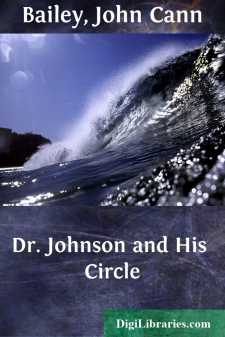Categories
- Antiques & Collectibles 13
- Architecture 36
- Art 48
- Bibles 22
- Biography & Autobiography 815
- Body, Mind & Spirit 144
- Business & Economics 28
- Children's Books 18
- Children's Fiction 14
- Computers 4
- Cooking 94
- Crafts & Hobbies 4
- Drama 346
- Education 58
- Family & Relationships 59
- Fiction 11835
- Games 19
- Gardening 17
- Health & Fitness 34
- History 1378
- House & Home 1
- Humor 147
- Juvenile Fiction 1873
- Juvenile Nonfiction 202
- Language Arts & Disciplines 89
- Law 16
- Literary Collections 686
- Literary Criticism 179
- Mathematics 13
- Medical 41
- Music 40
- Nature 180
- Non-Classifiable 1768
- Performing Arts 7
- Periodicals 1453
- Philosophy 65
- Photography 2
- Poetry 896
- Political Science 203
- Psychology 44
- Reference 154
- Religion 515
- Science 126
- Self-Help 85
- Social Science 83
- Sports & Recreation 34
- Study Aids 3
- Technology & Engineering 60
- Transportation 23
- Travel 463
- True Crime 29
Our website is made possible by displaying online advertisements to our visitors.
Please consider supporting us by disabling your ad blocker.
Dr. Johnson and His Circle
by: John Cann Bailey
Categories:
Description:
Excerpt
CHAPTER I
JOHNSON AS A NATIONAL INSTITUTION
The name of Samuel Johnson is, of course, not the greatest in English prose, but even to-day, when he has been dead more than a century and a quarter, it is still the most familiar. We live in an age of newspapers. Where all can read, the newspaper press, taken as a whole, will be a fairly accurate reflection of what is in the mind of a people. Nothing will be mentioned frequently in newspapers which is not of some interest to a large number of readers; and whatever is frequently mentioned there cannot fail to become widely known. Tried by this test, Johnson's name must be admitted to be very widely known and of almost universal interest. No man of letters—perhaps scarcely even Shakespeare himself—is so often quoted in the columns of the daily press. His is a name that may {8} be safely introduced into any written or spoken discussion, without fear of the stare of unrecognizing ignorance; and the only danger to which those who quote him expose themselves is that of the yawn of over-familiarity. Even in his own lifetime his reputation extended far beyond the limited circle of literature or scholarship. Actresses delighted in his conversation; soldiers were proud to entertain him in their barracks; innkeepers boasted of his having slept in their inns. His celebrity was such that he himself once said there was hardly a day in which the newspapers did not mention his name; and a year after his death Boswell could venture to write publicly of him that his "character, religious, moral, political and literary, nay his figure and manner, are, I believe, more generally known than those of almost any man." But what was, in his own day, partly a respect paid to the maker of the famous Dictionary and partly a curiosity about "the great Oddity," as the Edensor innkeeper called him, has in the course of the nineteenth century become a great deal more.
He is still for us the great scholar and the strongly marked individuality, but he has gradually attained a kind of apotheosis, a kind of semi-legendary position, almost rivalling that of the great John Bull himself, as the {9} embodiment of the essential features of the English character. We never think of the typical Englishman being like Shakespeare or Milton. In the first place, we know very little about Shakespeare, and not very much about Milton; and so we are thrown back on their works, and our mental picture of them takes on a dim and shadowy grandeur, very unlike what we see when we look within into our familiar and commonplace selves. Nor do Englishmen often plume themselves on their aesthetic or imaginative gifts. The achievements of Wren, or Purcell, or Keats may arouse in them admiration and pride, but never a sense of kinship. When they recognize themselves in the national literature, it is not Hamlet, or Lear, or Clarissa, or Ravenswood that holds up the mirror; but Falstaff, or The Bastard, or Tom Jones, or Jeanie Deans, or perhaps Gabriel Oak: plain people, all of them, whatever their differences, with a certain quiet and downright quality which Englishmen are apt to think the peculiar birthright of the people of this island....


